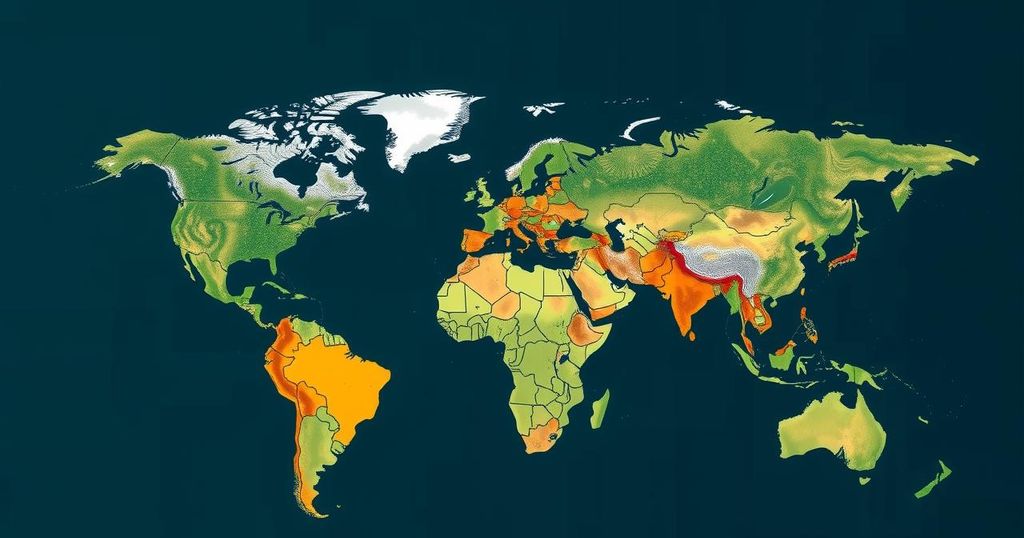Study Reveals Wealthy Nations’ Inadequate Response to Climate Change

A study by ASCOR reveals that wealthy nations are inadequately addressing climate change, with none on track to meet a 1.5°C future based on 2030 emission pledges. The review of 70 countries indicates no significant advantage for rich nations in tackling climate issues. Investors are concerned about the lack of actionable policies and climate financing from these countries, emphasizing the need for strong climate action.
A recent study conducted by the Assessing Sovereign Climate-related Opportunities and Risks (ASCOR) Project reveals that affluent nations are failing to adequately address climate change. Not one of the surveyed countries is currently on track to meet the 1.5°C future, based on their 2030 emission reduction pledges. The analysis covering 70 nations indicates that wealthier countries are not significantly outperforming their poorer counterparts in mitigating climate issues. Investors are concerned about the lack of effective national climate policies and actions from these nations, with notable discrepancies in climate financing as well. Furthermore, as legal actions against countries increase due to insufficient climate protection, the repercussions of these failures may intensify. Despite Costa Rica and Angola demonstrating progress towards acceptable benchmarks, a majority of countries remain uncommitted to halting new fossil fuel projects and lack transparent plans for phasing out subsidies for fossil fuels.
The urgency of climate change has prompted a reassessment of national policies across the globe, especially in wealthier nations whose responsibilities are often scrutinized due to their resource capabilities. The ASCOR project aims to provide investors with a clear picture of how adeptly governments are responding to climate risks, measuring countries against established climate goals. The lack of adequate funding and commitment from rich countries is particularly alarming, especially in light of international climate agreements. This study is especially pertinent as legal challenges against nations for inadequate climate action become more common, highlighting the potential ramifications of insufficient policy frameworks.
The findings from the ASCOR Project underscore a troubling reality: rich countries are not living up to their obligations in the fight against climate change. Despite the calls for robust climate policies and financing commitments, most countries have yet to take tangible steps towards sustainable practices. This situation raises critical concerns for investors and policy-makers alike. Urgent action is needed to ensure that national pledges lead to actual progress in combating global warming and protecting future generations.
Original Source: www.polity.org.za






